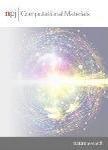Predicting the inhibition efficiencies of magnesium dissolution modulators using sparse machine learning models
作者机构:Institute of Material Systems ModelingHelmholtz-Zentrum HereonGeesthachtGermany Institute of Surface ScienceHelmholtz-Zentrum HereonGeesthachtGermany Institute of Polymers and CompositesHamburg University of TechnologyHamburgGermany Institute for Continuum and Material MechanicsHamburg University of TechnologyHamburgGermany Institute for Materials ScienceFaculty of EngineeringKiel UniversityKielGermany
出 版 物:《npj Computational Materials》 (计算材料学(英文))
年 卷 期:2021年第7卷第1期
页 面:1783-1791页
核心收录:
学科分类:08[工学] 0805[工学-材料科学与工程(可授工学、理学学位)] 080502[工学-材料学] 0703[理学-化学]
基 金:Funding by the Helmholtz Association is gratefully acknowledged.T.W.and C.F.gratefully acknowledge funding by the Deutscher Akademischer Austauschdienst(DAAD,German Academic Exchange Service)via Projektnummer 57511455 R.M.gratefully acknowledges funding by the Deutsche Forschungsgemeinschaft(D.F.G.,German Research Foundation)via Projektnummer 192346071-SFB 986 and Projektnummer 390794421-GRK 2462
摘 要:The degradation behaviour of magnesium and its alloys can be tuned by small organic ***,an automatic identification of effective organic additives within the vast chemical space of potential compounds needs sophisticated ***,we propose two systematic approaches of sparse feature selection for identifying molecular descriptors that are most relevant for the corrosion inhibition efficiency of chemical *** is based on the classical statistical tool of analysis of variance,the other one based on random *** demonstrate how both can—when combined with deep neural networks—help to predict the corrosion inhibition efficiencies of chemical compounds for the magnesium alloy *** particular,we demonstrate that this framework outperforms predictions relying on a random selection of molecular ***,we point out how autoencoders could be used in the future to enable even more accurate automated predictions of corrosion inhibition efficiencies.



